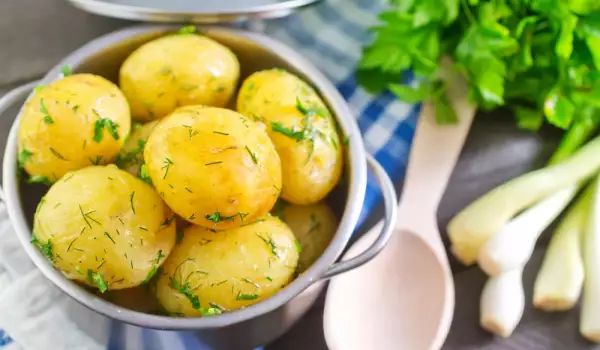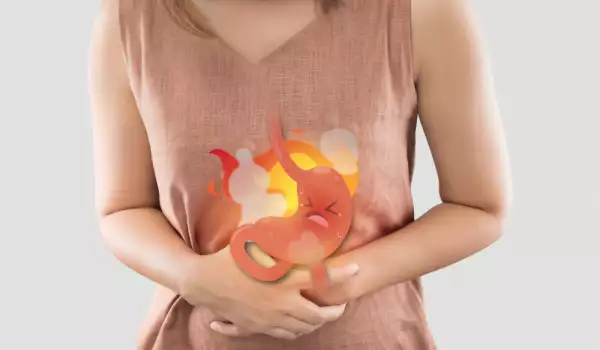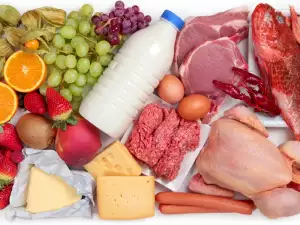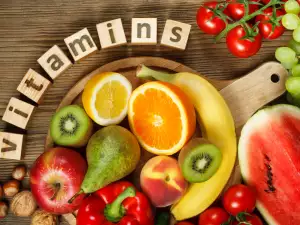At the root of most health problems is digestion. The digestive system provides the substances needed by all other organs and systems. When its functions are disturbed, the whole organism suffers.
The role of the stomach in nutrition is to grind the food that enters it in the form of mush. Gastric juices break down proteins into amino acids and help absorb minerals, vitamins and other nutrients.
The stomach is the only organ in which the environment is acidic and the digestive juices make that. In order not to disturb the tissue of the stomach, it is covered with a mucous membrane that forms a mucous secretion. That protects it.
Definition of gastritis
Gastritis is an inflammation of the gastric mucosa, which can occur suddenly and then be called acute gastritis, or be a constant phenomenon. In that case it is chronic gastritis. If such a diagnosis is made, it is good to know the cause of the inflammation.
Factors causing gastritis are:
- the frequent use of alcohol;
- frequent vomiting;
- stress;
- frequent use of certain medications such as aspirin or other anti-inflammatory drugs;
- the bacterium Helicobacter pylori (Helicobacter pylori);
- viral or bacterial infections;
- reflux disease.
With age, the secretion of gastric juices decreases and this leads to the development of bacteria, which are the factor for the appearance of gastritis. Under stress, sometimes the secretion of gastric juices increases and this predisposes to gastritis.
Other risk factors are: unhealthy diet, nutrient deficiencies, being overweight, medical history of autoimmune diseases and viral infections.
Nutrition has a primary role in controlling the symptoms of all digestive diseases, including gastritis.
Some foods cause irritation and inflammation of the stomach lining. That is why a healthy diet for gastritis is needed.
The main goal of a special gastritis diet is to control the infection and alleviate the symptoms associated with it.
Foods to avoid with gastritis

The most important thing in gastritis nutrition are the foods that should be avoided, because they cause abundant secretion of stomach acid and irritate the stomach lining. They are:
- Sugar products, including desserts containing sugar and fat - this includes ice cream, wafers, sponge cakes, cakes, chocolate and cocoa products;
- Vinegar in the form of marinades and dressings;
- Spicy foods - especially hot peppers;
- Fatty foods - fats in general take longer to digest and stay longer in the stomach, resulting in more hydrochloric acid being produced. Therefore, their quantity in the menu should be reduced;
- High-fat dairy products - proven that dairy products increase the secretion of stomach acid;
- Fatty meats and fish - this includes pork, carp, mackerel;
- Canned foods - include meat, fish and canned vegetables;
- Semi-cooked meat products - avoid sausages, salami, pastrami, hot dogs, smoked and salted meats;
- Vegetables - from all the variety, onions, garlic, corn, tomatoes and tomato sauces, turnips, leeks, mushrooms should be excluded;
- Fruits - oranges, tangerines, lemons, grapefruit, lime, kiwi, pineapple, green apple, berries and dried fruits are not suitable;
- Spices - black and cayenne pepper, garlic, mustard, cumin, curry, horseradish should be excluded from them;
- Beverages - alcohol, coffee, cocoa, strong teas, carbonated and energy drinks, soft drinks should not be consumed;
- Carbohydrate foods - depending on the reactions of the body, warm fresh bread, whole grain types of bread, legume foods, quinoa, buckwheat, wheat, soy may need to be excluded.
Foods suitable for gastritis
Foods recommended for gastritis are lean meats, some fruits and vegetables, low-fat dairy products, eggs, nuts, seeds, rice and potatoes.
- Meat - tender beef, lean chicken and lean fish such as pike, trout, white fish are suitable;
- Fruits - bananas, apples, pumpkin can be consumed;
- Vegetables - suitable are carrots, broccoli, cauliflower, cucumbers, zucchini, peppers, avocado, spinach, turnips, beets;
- Eggs - soft-boiled eggs, poached eggs, steamed are allowed;
- Low-fat dairy products - the choice is between white cheese, milk and yogurt;
- Fiber - soluble fiber is good. They are found in foods such as apples, oatmeal, bananas, lentils, apricots, blueberries, cucumbers, and carrots. Soluble fiber forms a protective gel in the digestive tract that protects the stomach lining;

- Carbohydrate foods - rice, potatoes, pasta, oats, white bread (not fresh), crackers have a good effect on the stomach in case of gastritis;
- Probiotic foods - these are low-fat yogurt, sauerkraut, kefir;
- Seeds and Nuts - Walnuts, hazelnuts, almonds, Brazil nuts, macadamia, pine nuts, flaxseed, chia, pumpkin seeds and sunflower seeds are good options.
Dietary Requirements
Duration of the regimen - this question depends on the symptoms, the duration of the disease, the cause, concomitant treatment and other factors. It is good to follow the gastritis regimen for at least 2-3 months after the symptoms have passed.
Heat treatment of food - fried food must be avoided. Instead, it should be prepared by boiling, stewing and baking.
Chewing food well - it is a must to chew food thoroughly. In case of an illness, such as gastritis, the food must be chewed especially well so that it enters the stomach in a mushy form and does not complicate the process.
Meal frequency - in order not to burden the digestive system, gastritis food should be taken at small intervals and in small quantities. It is recommended that the food is divided into at least 4 meals, in the best case - 5-6 times.
Avoid starving yourself - prolonged periods of not eating during the day should be limited.
Avoiding eating before bed - eating before bed is not a good idea. At least 2-3 hours must have passed before the last meal.
Avoiding stress - stressful lifestyles, hectic everyday life, nutrition and health are interconnected. Anxiety, nervous tension lead to disturbances in digestion and health in general. In stress mode, stress hormones are released, as a result of which digestive functions take a back seat. In case of gastritis, there is often an increase in pain or a complication of the condition when it is combined with stress and anxiety.
A holistic approach combining drug treatment, proper diet and positive lifestyle changes is the way to improve gastritis health. The principles of healthy eating and living should be tailored to the individual characteristics of the body.
Read more: Suitable desserts for gastritis.




















Comments